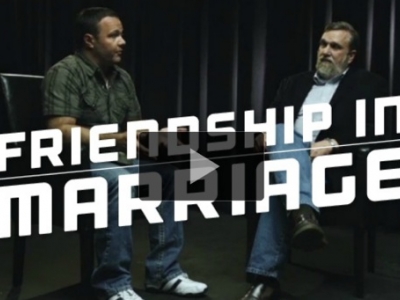
Three things we want our kids to know about sex
Ben and Emma Pfahlert believe it's important to tell your kids everything about sex ... before someone else does.
My wife Emma and I are the grateful parents of four children: Shaun (aged 28, whom we adopted sixteen years ago as a twelve-year-old), Isabella (aged 11), Edmund (aged 8), and Samuel (aged 6).
We made the decision to tell our four kids everything about sex from the earliest point in time that they could understand what a penis or a vagina was.
Why we chose to tell our kids everything about sex
We made this decision for two reasons:
- We believe that human sexuality is like a Souvlaki from Lambs’ Restaurant in Lygon Street, Melbourne; a glorious God-given gift to be savoured and enjoyed.
- We didn’t want our kids learning about sex in the playground from a six-year-old kid who thinks he’s an expert on the topic because he googled “boobs” one Saturday afternoon while his parents were out shopping.
The framework they need to know
In a nutshell, our desire is for our kids to know the Biblical basics about sex so they can have a framework for understanding all the physical aspects.
We don’t want our kids at age 16 sitting around in the school playground talking about the importance of saving sex until marriage, getting grilled with a question like, “My parents aren’t married and they obviously had sex to bring me into the world, where on earth do you get this idea that what they did is wrong?”, and for our kids to say, “I don’t know… my parents just told me.”
And so to help them have a Biblical framework, we start with the first wedding (or sexual union) of the Bible.
If you understand the union of Adam and Eve in Genesis 2:20-25 then you’re usually pretty well equipped for any conversations that might come your way about the topic that arise about love, sex and marriage.
In fact, one of the ways we know that Genesis chapter 2 is such an important place to start on this topic is that Jesus chooses to quote it in Matthew 19:4-6 when he gets hammered by his opponents on this topic.
So, what is it that we want our kids to know, or notice, about the first act of sex in the Bible?
1. Men need to leave
Firstly, we tell our kids that before a man can get married and have sex he must leave his father and mother and start a new family (or declare a new allegiance).
The word ‘leave’ in the original language of Genesis is ‘punctiliar’, which means that it is an event that happens in an instant of time, like the click of a person’s fingers.
For a man who is getting married, the point at which he leaves his mother and father is the exact moment someone says, “I now declare you man and wife” at the wedding. Bang.
2. Men need to cleave
Secondly, in order for a man to have a godly marriage and sex life he must ‘cleave’. He must stick to his wife, or commit to a life-long union with her. Again, this usually happens during the vows in the public wedding ceremony.
Forgive me for being a linguistic geek here, but the Hebrew word for ‘cleave’ is the same word they used for a terminal illness, like cancer, which ‘sticks’ to someone. It was with you until death.
We tell our kids that you can’t have sex with someone you haven’t publicly committed to spending the rest of your life with; you can’t have sex with someone you haven’t married.
3. The couple can then be united
Thirdly, once the ‘leaving’ and the ‘cleaving’ has happened, the sex bit comes when they are united. The description is beautiful isn’t it? If you leave and then cleave, then God will glue you together. You will be so united, so connected that you’re actually now described as ‘one flesh’.
This unity is complete in three ways:
a. They are sexually united: a husband and wife may now have lots of sex, to create another ‘one flesh’, a child.
b. They are domestically united; they created a new family on the wedding day, whether they end up having kids or not.
c. They are emotionally united; they are now ‘for each other’ as they experience shared ambitions, not individual desires.
So that’s what we try really hard to teach our kids.
But what about the biology?
Now you might be thinking, “Gee, that’s pretty boring… I thought teaching your kids about sex might involve more than a Bible Study on Genesis.”
Well, yes, it does involve more than that, but you have to have the right basis upon which to talk about ‘special cuddles’, ‘bosoms’ and so on, or otherwise your kids will be learning practices devoid of the Christian principles that undergird those practices.
It is with this framework in place that we talk to the kids about sex.
Find out tomorrow in the second part of this article exactly what we say when we talk to our kids … and what we do if they ask questions about same-sex marriage, threesomes, or other tricky subjects.
For more articles from Growing Faith, subscribe to our monthly e-newsletter.
To hear about the latest books and resources from Youthworks Media, subscribe here.







